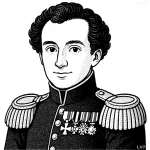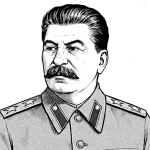“If they want peace, nations should avoid the pin-pricks that precede cannon shots.”

- August 15, 1769 – May 5, 1821
- French of Italian descent
- French military officer and emperor
table of contents
Quote
“If they want peace, nations should avoid the pin-pricks that precede cannon shots.”
Explanation
In this statement, Napoleon Bonaparte warns that small provocations or minor conflicts between nations can escalate into full-scale war if left unchecked. By referring to these provocations as “pin-pricks,” he emphasizes that seemingly minor or trivial actions—such as diplomatic insults, territorial disputes, or economic sanctions—can set off a chain reaction that leads to “cannon shots,” or violent conflict. Napoleon’s words underscore the importance of diplomacy, patience, and careful communication in international relations to prevent minor tensions from spiraling into armed confrontations.
This insight is especially relevant in the context of foreign policy and conflict resolution. History has shown that wars often begin not from major crises, but from a buildup of smaller grievances that eventually lead to open hostilities. By addressing issues early, with a focus on dialogue and mutual respect, nations can work toward peaceful resolutions rather than allowing frustrations to accumulate to the point of violence.
Napoleon’s statement serves as a reminder of the value of restraint and proactive diplomacy in maintaining peace. It encourages leaders to approach minor conflicts with care, recognizing that even small actions can have serious consequences. This perspective promotes a thoughtful approach to international relations, where the focus is on preventing misunderstandings and maintaining stability, rather than reacting emotionally or impulsively to perceived slights or provocations.
Would you like to share your impressions or related stories about this quote in the comments section?




